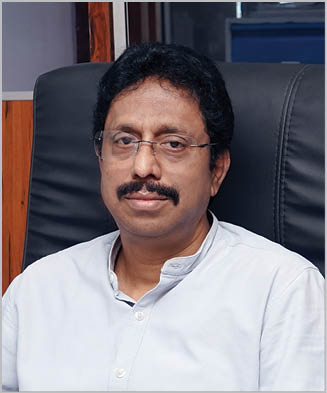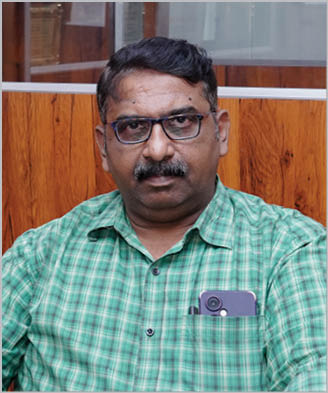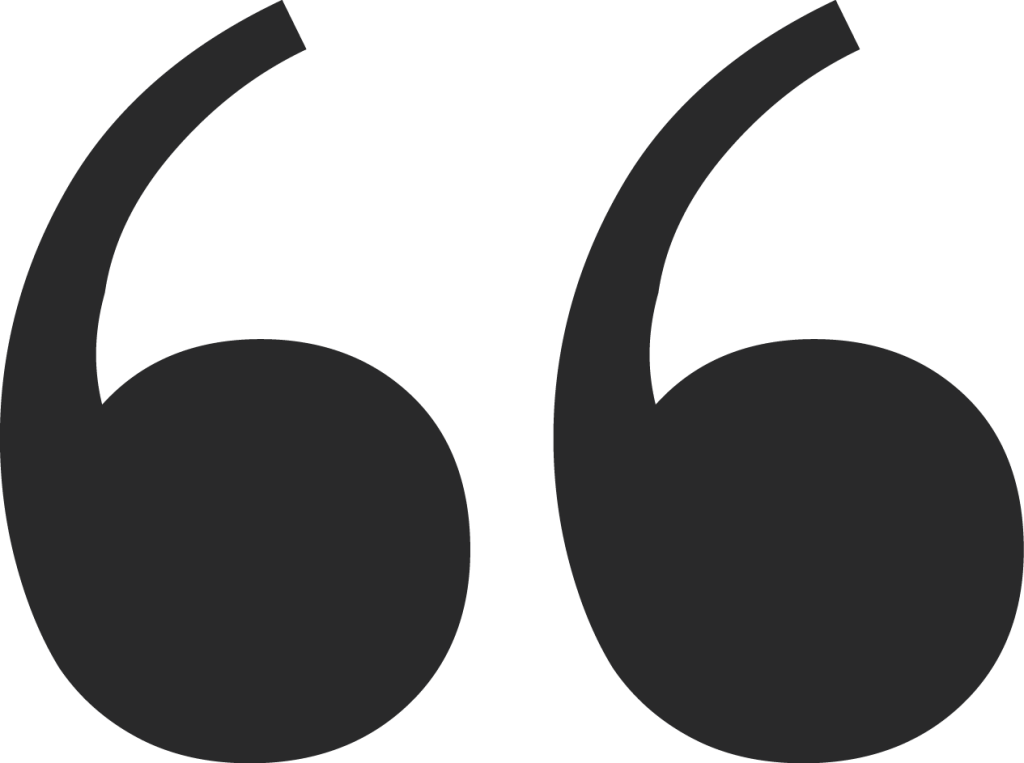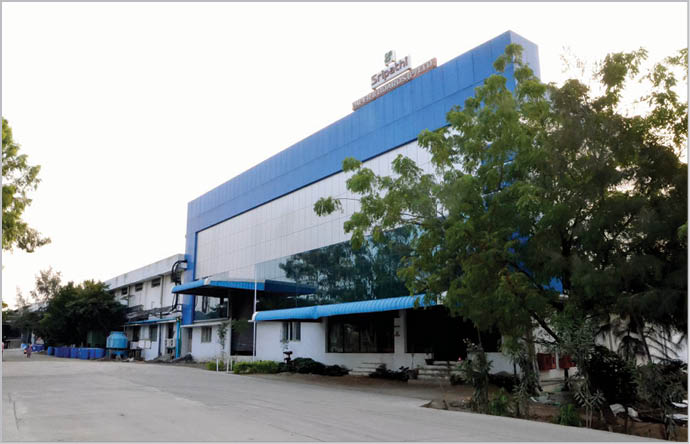Established in 2002, Sripathi Paper and Boards Private Limited operate manufacturing units in Sivakasi and Sathyamangalam at Tamil Nadu, with a combined capacity of 800 metric tons per day. The company produces grey back recycled boards and recycled folding box boards for the FMCG sector, as well as high-RCT white test liners for liner and defreeze applications. In an interview with Paper Mart, Mr. N. Rama Mohan Murali, Senior Vice President – Operations, and Mr. Kunjappan K, DGM – Quality, Sripathi Paper and Boards Private Limited, discuss about the latest developments in the company with the recent launch of low-GSM coated white kraft liners, low-GSM white backboards and high bulk uncoated boards. These innovations enhance functionality and reduce costs for its customers.



Paper Mart: Please tell us about your company and the manufacturing setup you have. What technologies have you integrated into your system to enhance product quality & operational efficiency?
Rama Mohan Murali: Our company stands as one of the largest recycled paper and paperboard manufacturers in South India, catering to the primary and secondary packaging needs of high-growth sectors such as FMCG, retail, consumables, e-commerce, and others. Our extensive manufacturing facilities in Sivakasi and Sathyamangalam have a combined production capacity of 800 MT/day. Across the two units, we manufacture 150 MT/day of kraft paper, 500 MT/day of duplex board, and 150 MT/day of writing & printing paper (50 MT/day writing & printing in Sivakasi and 100 MT/day in Sathyamangalam).
PM: Can you elaborate on your product specifications and its capacities that makes your products different from your competition? What are the technological advancements adopted by your company?
Kunjappan K: Our advanced technologies set us apart from the competition by significantly enhancing product quality and operational efficiency. Our board machine features an online dilution control system to maintain a uniform GSM profile, ensuring superior dimensional stability for our paperboard products. The system provides precise profile correction, resulting in high dimensional stability for our board products, which in turn improves the runnability of printing machines.
Equipped with advanced shoe press technology, our machine delivers higher bulk and stiffness, meeting the stringent requirements of the market. The inclusion of pre and topcoat with blade coaters ensures an exceptional printable surface, enhancing the quality of our products. The dual blade coaters on the top side of our board machine improve offset printing quality, ensuring a smooth and consistent finish.
We also specialize in providing dust-free and consistent shade in the grey-back recycled board segment and produce recycled folding box boards that meet the high print quality standards of the FMCG sector. Additionally, we manufacture high RCT white test liners suitable for liner and defreeze applications. Our commitment to producing dust-free boards in the recycled segment leads to productivity improvements at printing facilities, making us a preferred choice for businesses seeking reliable and high-quality paperboard solutions.

Currently, the company exports 15% of its total sales to international markets, including Sri Lanka, Bangladesh, the Middle East, Africa, and select European nations.
PM: What product range do you cater to the market? How much has the range diversified over the years?
RMM: Our company offers a diverse range of products, including multilayered MF kraft papers, writing and printing papers, and paperboards, all produced from our five advanced machines. These products cater to various segments and applications, allowing us to maintain a wide and flexible product range tailored to market requirements and specifications.
Over the years, our product range has continuously diversified to meet evolving market demands. Recently, we have introduced low-GSM coated white kraft liners for top liner applications, low-GSM white back for cultural segments, and high bulk uncoated boards for matchbox inners, providing substantial savings without compromising the functional and aesthetic properties of finished cartons. Our technological capabilities make us one of the few mills able to deliver a wide variety of products under one roof.
Watch: In Pursuit of Lesser Water Footprint
PM: In what sectors do your products find significant use? Where do you see stronger demand and what new sectors are you eyeing?
RMM: Our extensive capacity in paperboards positions us as a predominant player in numerous packaging applications. Our products are widely preferred in sectors such as FMCG, electronics and electrical appliances, automobiles, pharmaceuticals, textiles and apparel, agarbattis, edible oils, matches, and fireworks.
We are observing a growing demand in the e-commerce and food segments and have strategic plans in place to develop products that meet the specific needs of these end-user applications. This proactive approach ensures that we stay ahead of market trends and continue to meet the diverse needs of our clients.
PM: How has your company evolved in terms of business growth and product diversification? Have you expanded your presence in international markets?

RMM: We supply more than 20% of the total recycled board requirements in South India, establishing ourselves as a significant player in the recycled space. Our success in launching new products for existing customers has helped us retain and expand our share of business with them.
Geographically, we have been expanding our client base by adding new customers from different parts of India and abroad. Currently, 15% of our total sales are exported to countries such as Sri Lanka, Bangladesh, the Middle East, Africa, and some European nations. This international presence reflects our commitment to growth and our ability to meet the demands of a global market.
PM: How is sustainability intertwined with your operations? What initiatives are undertaken for better waste and water management?
RMM: Sustainability is a core aspect of our operations, and we have implemented several initiatives to enhance waste and water management. Our commitment to minimizing environmental impact is evident in our water consumption practices, where we have achieved one of the lowest rates in the industry at 1.7 cubic meters per metric ton. This efficiency is achieved through advanced water recycling methods and proper treatment processes.
Additionally, we have integrated high-efficiency vacuum pumps and turbo blowers into our operations, significantly reducing energy consumption.
As part of our sustainable energy efforts, the solar and wind sources contribute 13% to our overall energy consumption, while biomass accounts for 35% of our fuel usage. These substantial contributions to renewable energy have earned us the Excellence in Energy Management award for 2024 from the Confederation of Indian Industry.
These measures not only contribute to our sustainability goals but also ensure that we operate in an environmentally responsible manner, minimizing our ecological footprint while maintaining high operational efficiency.

We manufacture 150 MT/day of kraft paper, 500 MT/day of duplex board, and 150 MT/day of writing & printing paper (50 MT/day writing & printing in Sivakasi and 100 MT/day in Sathyamangalam)
PM: Given the scarcity of raw material in the Indian market, how do you intend to save yourself from raw material volatility? What are your production and sales revenue expectations for this year?
RMM: At Sripathi Paper and Boards, we prioritize the steady availability of raw materials to ensure uninterrupted operations, especially given the volatility in supply and pricing of waste paper. As per Mr. Sudharsan Rangaswami, Assistant Vice President – Finance, Sripathi Paper and Boards, to mitigate these fluctuations, we strategically alternate between local and imported waste paper procurement.
During the domestic supply season from March to August, we procure local raw materials at lower prices, building up our inventory while maintaining an optimal level of imports. As the domestic season ends and prices rise, we progressively increase our importation of waste paper.
Our imports are sourced from the US, Europe, and Southeast Asia. We prefer importing from European markets when their rates are competitive, particularly when Southeast Asian countries import less from Europe. This flexible approach allows us to manage costs effectively and maintain a consistent supply of raw materials.
For the fiscal year 2024-2025, Sripathi Paper and Boards aims to achieve a saleable production target of 1.43 lakh metric tons. This projection reflects our confidence in maintaining high production efficiency and meeting market demand. Our strategic procurement practices and robust production capabilities position us well to achieve these ambitious targets, ensuring sustainable growth and stability in a competitive market.
Also Read: Jani Sales Launches 60 TPD Tissue Paper Mill in Gujarat
PM: According to your observations, what is the current market scenario and how much the market will evolve in the next 5 years?
RMM: The market is experiencing a significant shift towards sustainable packaging due to rising environmental consciousness. Recycled paper has emerged as a leading alternative to single-use plastics, offering advantages such as biodegradability, recyclability, and a reduced carbon footprint. Innovations in paper packaging have improved its strength, barrier properties, and design flexibility, making it a viable option for various industries.
In the next five years, the market for recycled paper packaging is expected to grow substantially. Increasing consumer demand for eco-friendly products will drive businesses to adopt sustainable packaging solutions. Future advancements will likely include better recycling infrastructure, biodegradable inks and adhesives, and techniques for light weight packaging. Collaborative efforts will also lead to standardized certifications, helping consumers identify sustainable packaging options. This shift reflects a broader commitment to environmental responsibility, with recycled paper playing a key role.

The substantial contributions to renewable energy have earned us the Excellence in Energy Management award for 2024 from the Confederation of Indian Industry.



